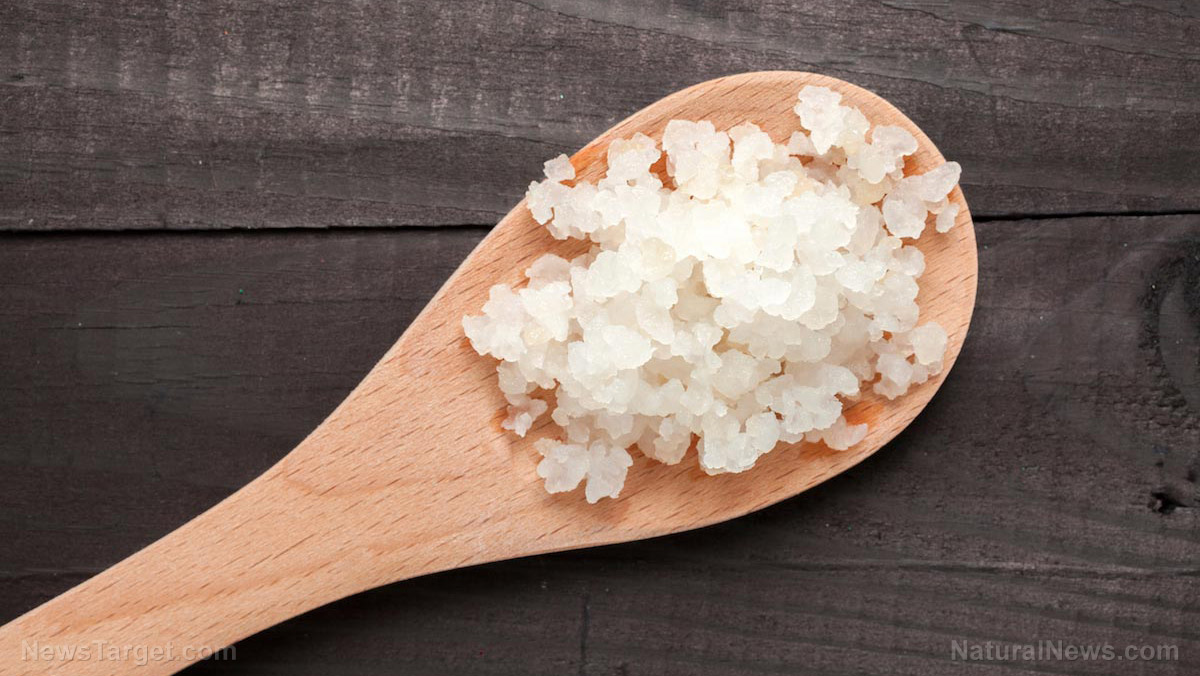 Parler
Parler Gab
Gab
- Kefir's origins can be traced back over 2,000 years ago to the Caucasus Mountains, where it was traditionally made using fermented milk and kefir grains. Its name derives from the Turkish word keyif ("good feeling"), and its production was a closely guarded secret before spreading globally in the 19th–20th centuries.
- Kefir is rich in probiotics (up to 50 strains), vitamins (B vitamins, K2), minerals (calcium, magnesium) and bioactive compounds like polyphenols, peptides and CLA, contributing to its superfood status.
- Studies suggest kefir may improve digestion, support immune function, lower LDL cholesterol and regulate blood sugar, though more clinical research is needed to confirm these effects.
- Consumed worldwide for gut health, kefir can be used in smoothies, dressings, baked goods and marinades. Dairy-free versions (water kefir) cater to those with sensitivities.
- Kefir has a tangy, slightly effervescent taste and creamy texture. Its resurgence in wellness circles is driven by anecdotal success stories that suggest it can alleviate digestive issues, and its adaptability in recipes.
The origins of kefir
Kefir’s roots can be traced back over 2,000 years ago to the shepherds of the Caucasus, to whom legend says the "grains of the Prophet" were given as a divine gift. The name kefir comes from the Turkish word keyif, meaning "good feeling" — a nod to the sense of well-being it imparts. Traditionally, kefir was made by fermenting milk in leather bags, where the unique kefir grains (a symbiotic culture of bacteria and yeast) transformed it into a slightly effervescent, probiotic-rich drink. (Related: Lower your blood pressure naturally with kefir.) For generations, the method of making kefir was a closely guarded secret among Caucasian tribes. It wasn’t until the late 19th and early 20th centuries that kefir grains spread to Russia and later to Europe and North America and commercial production began. Today, kefir is widely available in grocery stores, though artisanal and homemade versions remain popular for their superior probiotic content.Why kefir is regarded as a superfood
Kefir earned its superfood status due to its dense nutritional profile. Unlike yogurt, which contains a few strains of bacteria, kefir boasts up to 50 different probiotic strains, along with essential nutrients like calcium, magnesium, B vitamins and vitamin K2. It also contains bioactive compounds such as:- Polyphenols - Antioxidants that combat oxidative stress
- Peptides - Protein fragments with anti-inflammatory properties
- Conjugated linoleic acid (CLA) - A fatty acid linked to heart health
Health benefits of kefir
While kefir’s traditional uses are well-documented, modern science is still uncovering its full potential. Some evidence-backed benefits include:- Digestive health - Kefir’s probiotics can help alleviate bloating, constipation and lactose intolerance by breaking down lactose more efficiently than yogurt.
- Immune support - Certain strains in kefir, like Lactobacillus kefiri, can inhibit the growth of harmful bacteria such as Salmonella and E. coli.
- Cholesterol management - Animal studies suggest kefir can lower LDL ("bad") cholesterol, though human trials are needed.
- Blood sugar control - Fermented dairy products like kefir have been associated with improved insulin sensitivity
Culinary uses and recipes to try
Kefir has a creamy, slightly thick consistency, akin to drinkable yogurt. Its taste is tangy and mildly sour, with a subtle effervescence from fermentation. Depending on the milk used (cow, goat or sheep), its flavor can range from mild to robust. Traditional kefir is white, but variations like fruit-infused or flavored kefirs may have different hues. In recent years, kefir has seen a resurgence among health enthusiasts. One wellness blogger shared how switching from yogurt to kefir helped alleviate her chronic bloating within weeks. While anecdotal, such stories contribute to kefir’s growing reputation as a gut-healing powerhouse. Kefir’s versatility makes it a star ingredient in many dishes. Incorporate kefir into your meals by making the following:- Kefir smoothie bowl - Blended with berries, chia seeds and honey for a probiotic-packed breakfast.
- Kefir ranch dressing - A gut-friendly twist on the classic, using kefir instead of buttermilk.
- Kefir pancakes - Fermented kefir adds fluffiness and a slight tang to the batter.
- Kefir marinated chicken - The enzymes in kefir tenderize meat while infusing flavor.
- Kefir ice cream - A dairy-based frozen treat with added probiotics.
More related stories:
Can you avoid cancer by drinking traditional kefir? Here's the science Five traditional foods that everyone should be eating for exceptional health Kefir is a great natural source of probiotics and protein More studies prove your gut bacteria control your brain functioning Sources include: Brighteon.ai NaturalNews.com Brighteon.comBaked beans RECALLED over undeclared allergy-causing ingredient
By Ramon Tomey // Share
Nutraceuticals and functional foods: Pioneering the future of health and disease prevention
By Belle Carter // Share
Allan Campbell: Fight inflation and food scarcity by GROWING YOUR OWN FOOD
By Kevin Hughes // Share
Virologist who endorsed HCQ for COVID-19 appointed to top pandemic post at HHS
By Ramon Tomey // Share
Monkey orange: The secret superfruit that supports good health
By Zoey Sky // Share
Governments continue to obscure COVID-19 vaccine data amid rising concerns over excess deaths
By patricklewis // Share
Tech giant Microsoft backs EXTINCTION with its support of carbon capture programs
By ramontomeydw // Share
Germany to resume arms exports to Israel despite repeated ceasefire violations
By isabelle // Share










